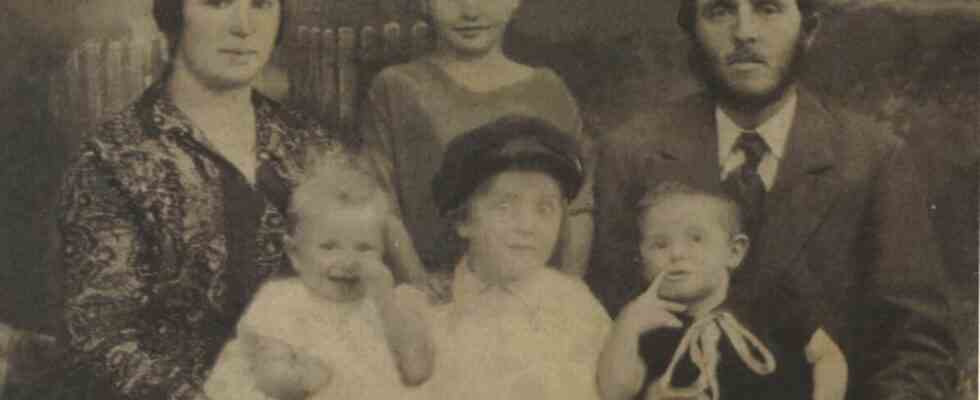Auschwitz Memoirs
“It was hard to go that deep for the book”
A photo
© -/private/dpa
Few people survived Auschwitz. Rachel Hanan is one of them. In her memoirs she has now published her experiences before, during and after the Holocaust.
Survive. And then be survivors. This has been Rachel Hanan since she was about 16.
A year earlier, almost exactly on her 15th birthday, she had been sent to the Auschwitz death camp. On that day she lost her mother Ethel and father Fivish, her brothers Zvi and Yehuda. It is not known on which day her sister Chaya and her daughter Etia were killed. At the time, she didn’t know all that. She didn’t know what came after the selection ramp. And she didn’t know that a very specific smell, like burnt chicken bones, would remind her of that time. Almost 80 years later, Hanan knows that Auschwitz has repeatedly haunted her nightmares.
Rachel Hanan has been silent for 50 years and largely kept her experiences to herself. In her memoirs “I conquered anger and hate”, which was published on January 18, she published the story of her feelings in book form for the first time. “In the past, I wanted to focus on the positive feelings in my life, which was important to healing and evolving and achieving what I wanted to achieve,” she says in Retrospective. She hadn’t even spoken to her husband about it, even though he held her in his arms night after night as she cried out in her sleep.
“It was difficult to go so deep for the book. Even more difficult than traveling back to Auschwitz as part of a delegation,” she said in an interview with the German Press Agency. “While working on the book, I dug deep into my feelings for weeks, it was mental and physical exertion and therefore not easy.”
Primarily, her story was written for her own descendants and friends. The book, which will initially only be published in German but will later also be translated into English and Hebrew, is intended as a warning to young people. “Nowhere in the world should such or similar terrible things ever happen again.”
A piece of bread becomes the last hope
Rachel Hanan, now 93 years old, originally comes from Unterwischau, Romania. At that time the region was occupied by Hungary – an ally of the National Socialists. In her book she describes the days before the deportation – and how carefree she was. She talks about the fact that her menstruation stopped in Auschwitz due to the stress and the fear that she would never be able to have children. She also tells how on the death march to the Theresienstadt concentration camp – only a skeleton and weighing 25 kilograms – she clung to a piece of bread and it was her last hope. To this day, she never throws bread away, even though decades later she lives thousands of miles away in the northern Israeli city of Haifa.
The Jewish state helped the long-time social worker to heal. “The most important thing is that Jewish life is coming back. Ever since my first day in Israel, I have been happy about every success, every building that is built and every tree that grows in the country, about children playing in kindergarten and are not forcibly taken to death camps. Even though I am critical of some things that are happening in my country, I am very happy that my children live here in Israel and not anywhere else in the world.”
Educational work for young people in Auschwitz
Despite everything, she has always returned to Auschwitz in the past to tell young people what she experienced in the extermination camp. Her memoir is intended to continue this work when at some point it is no more. Her hope for the present and future is that everyone behaves like “a mensch”. This is the Yiddish name for someone who is full of integrity and honor.
The memoirs of Holocaust survivor Tova Friedman were also published by Penguin Verlag on Wednesday. She was deported to Auschwitz when she was four and was liberated with her mother when she was six and a half. Today she is on Tiktok with her grandson – there they explain the horrors of the Holocaust. The two books are published very close to an important commemoration day – January 27, when Auschwitz was liberated by the Soviet army.

